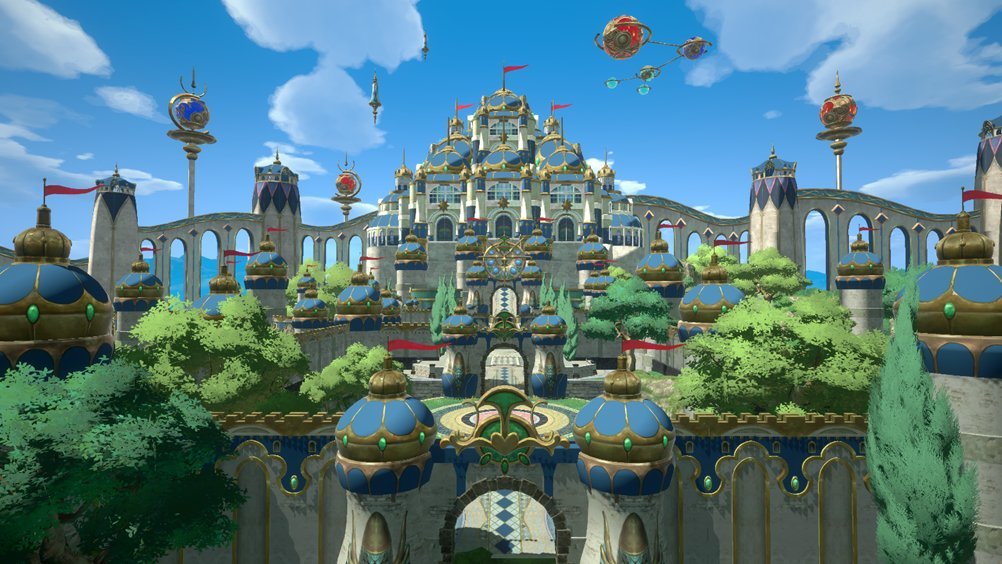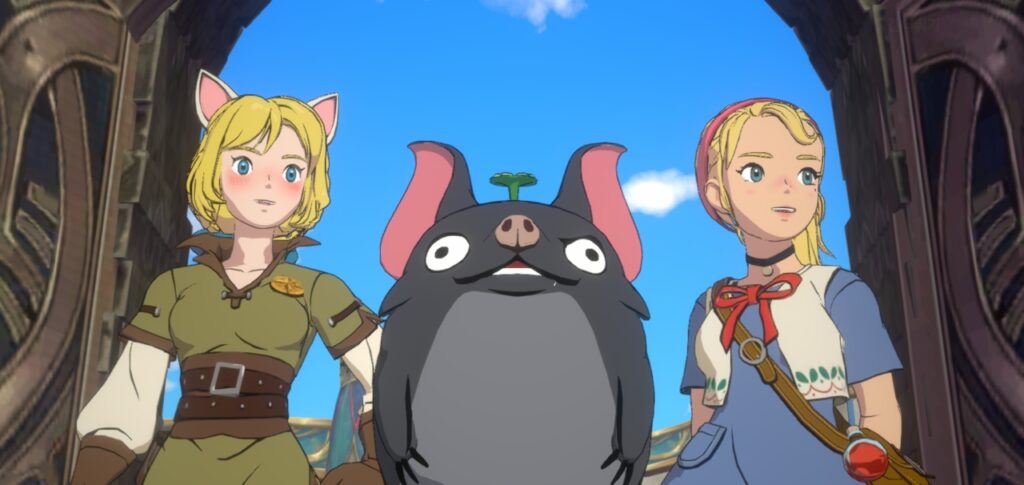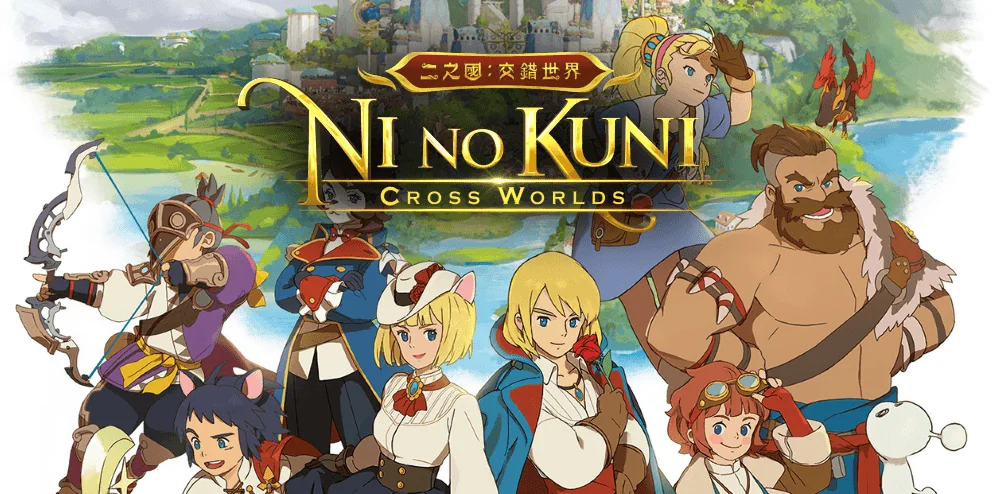When I was first asked to write an article on Ni No Kuni and its possible theological connection, I immediately went with the low-hanging fruit: vengeance and the lies we tell ourselves. Spoiler alert: the entire motivation of the antagonists in this game is based on that. You come up against a bad guy, and I’m talking about the main ones, Shadar and Cassiopeia (the eponymous White Witch), that is their sole motivation. The things of their world hurt them, and so they are going to hurt the world back. All while lying to themselves, saying that this is the only way to save the world; nuke it from orbit and start over. You can see how easy it would be to discuss that. It doesn’t ask us to do anything really difficult, save examining our internal monologue to ensure we aren’t justifying bad behavior. Easy, right?
Let’s take a step further. What does the Japanese title mean? Ni No Kuni means “second (another) country.” This makes sense. You start the game in a magic-less world that has all the trappings of our earthly life.
A Familiar RPG Tale

After a series of unfortunate events, you find yourself whisked away on an epic quest to maybe bring your mother back to life (Hey, this is a game written like an anime; the mother was going to be horrible, dead, or die partway in. You get used to it). It doesn’t take long before you get a God complex and decide you’re going to save this other world because, in this new place, you’re a wizard—a powerful one. Any fan of the RPG genre has heard/played this story countless times. So what’s different? The difference is the two-world aspect and the connectedness of it. Most of the people in one world have a counterpart in the other. The connection is so strong that if one person is hurt or “heartbroken” it affects the other. The death of one results in the death of the other. So, while they are distinct, they are one. Like the view of Christian marriage, but that’s not where I’m going. I think we can look at this and be reminded of the fact that we, as Christians, are to live in two kingdoms.
The short version is we live currently in the earthly kingdom of man. We are born into it and our citizenship starts there. The second Kingdom, or Ni No Kuni if you will, for Christians is the one we were purchased into and look forward to as home. We live as foreigners in this earthly kingdom, working for its good as commanded by the King who chose us as His own. We abide in the already-but-not-yet praying for the second Kingdom to come so that we may go home.
A Glimpse of Our Future Worship

Oliver, the protagonist, begins to seek the good of the country he goes to, all the while motivated by bringing his mother back. We are called to work for the welfare of the place we are exiled to, for we will find our welfare is linked to it. We are to be a means to bring God glory. His people, called by His name, seeking the welfare of the places they are will show that God’s people are different and we are called to continue in faith, even in this exile, that we will one day reach that glorious home. When we see “another country,” we should yearn for our future home. It should stir in us feelings of longing and homesickness. Each Lord’s Day, as we gather and experience a small glimpse of our future worshipping God in all His glory, we should feel pangs of loss as it ends that we are having to return to this exile. Paul experienced this in prison:
This is where we are. Each week, we are given a chance to be in the presence of the living God, together with the rest of the saints, lifting our prayers and praises. But this still pales in comparison to the future that awaits. To die, for the Christian, is gain. Not in some nihilistic, fatalistic kind of way, saying this life is meaningless, but instead knowing that the next life is going to be so much more.
There lie our two countries—the kingdom of man, where we are to love our neighbors as ourselves, and the Kingdom of God, whom we are to love with all our heart, soul, mind, and strength. For on these two promises, all the Christian faith rests. We seek the building up and expansion of God’s Kingdom by working in this kingdom to which we are currently exiled. We keep doing it until that wonderful day when we are called home.




Leave a Comment